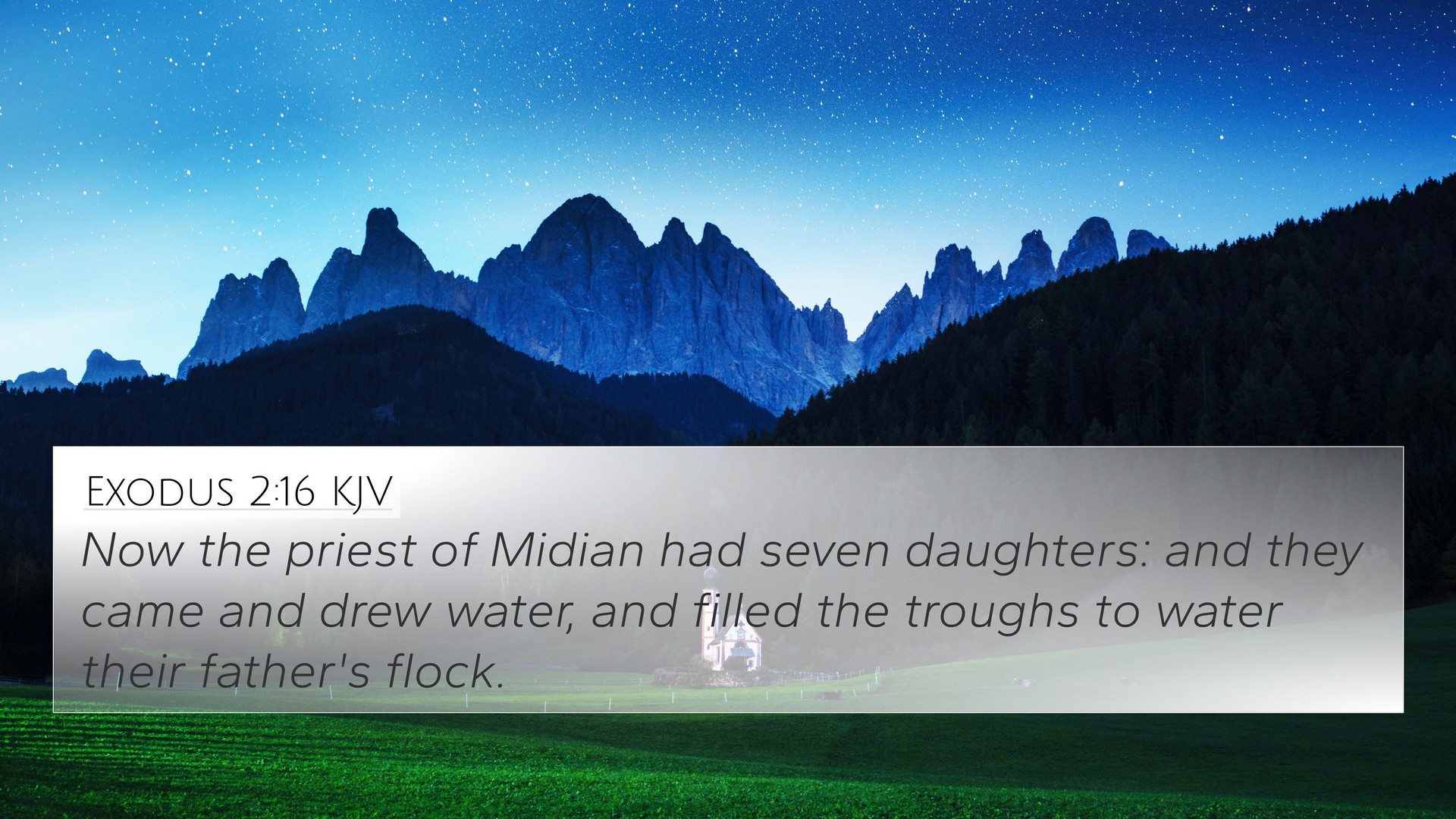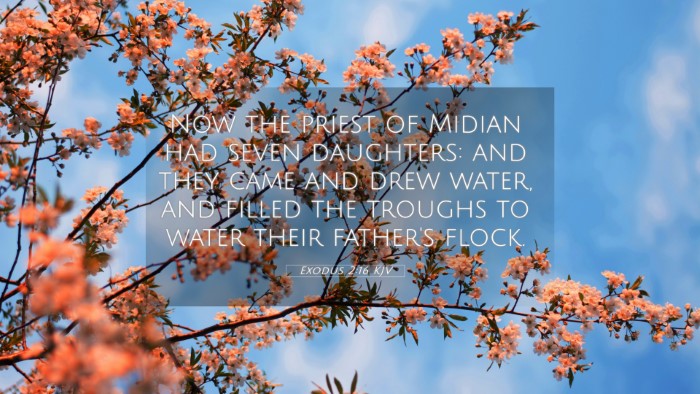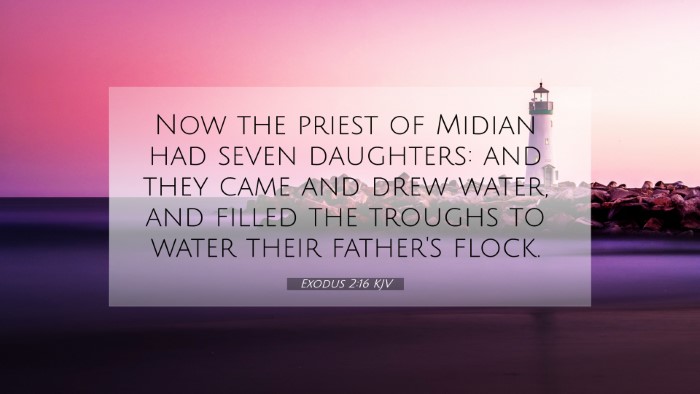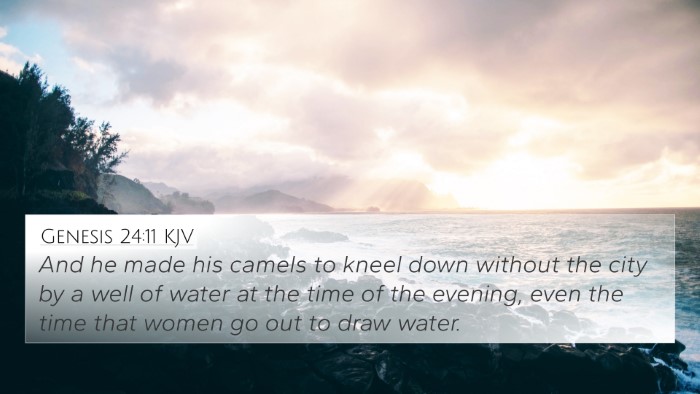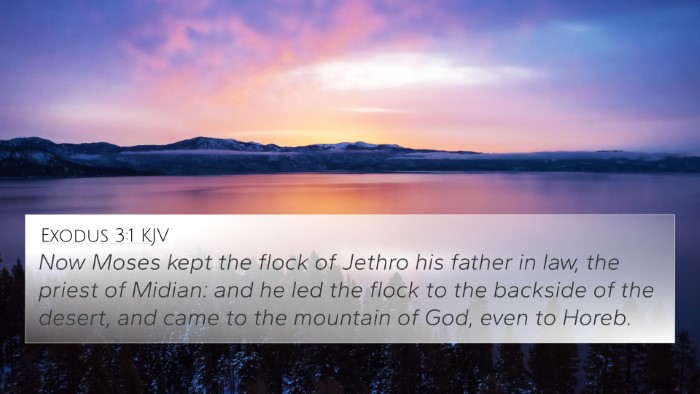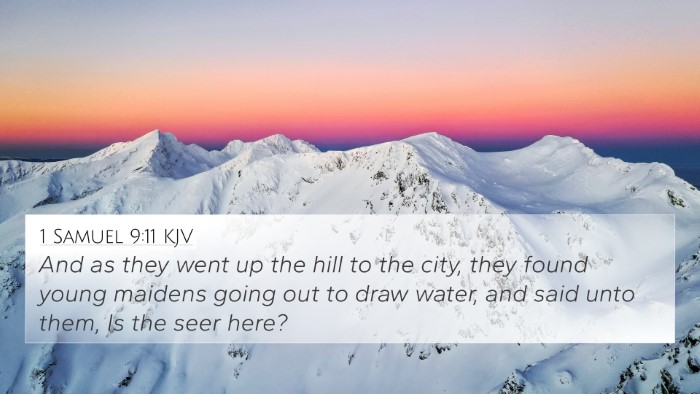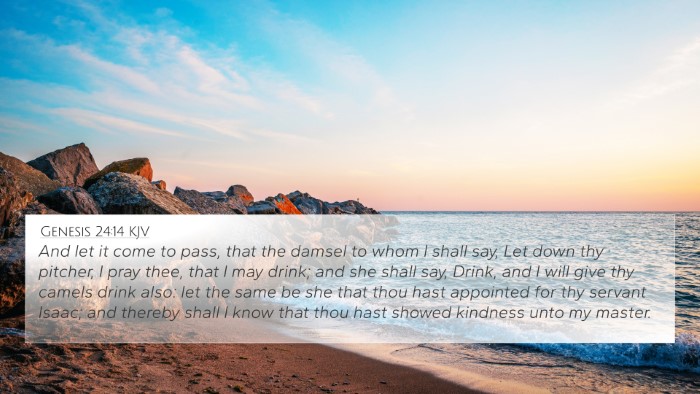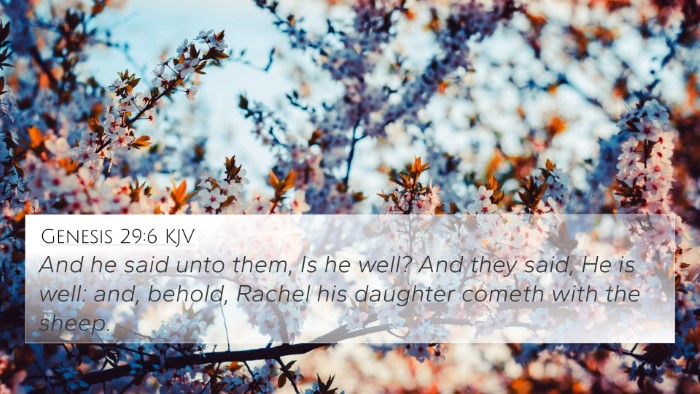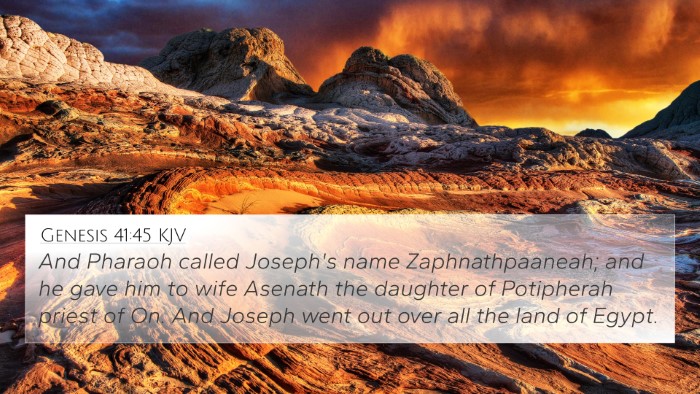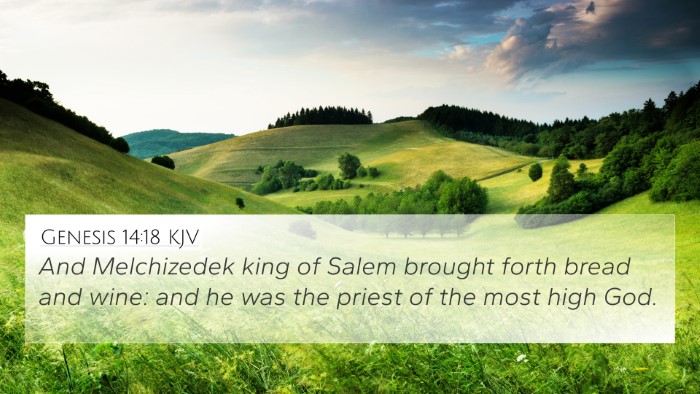Understanding Exodus 2:16
Verse Reference: Exodus 2:16
Verse: "Now the priest of Midian had seven daughters, and they came and drew water, and filled the troughs to water their father's flock."
Summary of Meaning
Exodus 2:16 describes a significant moment in Moses' early life. As the adopted son of Pharaoh's daughter, Moses steps away from the royal life to encounter the struggles of the people, which eventually leads him to fulfill his destiny as a leader. In this verse, we see Moses interacting with the daughters of the priest of Midian, who are portrayed as hardworking and dedicated. Their act of drawing water highlights the importance of community and service, while also foreshadowing Moses' significant role in delivering the Israelites.
Insights from Commentaries
-
Matthew Henry:
Henry emphasizes the humble circumstances in which Moses finds himself and the providential nature of his life experiences. He notes that God was preparing Moses for his future responsibility in delivering His people. The involvement of the priest's daughters serves to illustrate Moses' character and the qualities that make him a compassionate leader.
-
Albert Barnes:
Barnes discusses the setting being important for understanding Moses' character development. By being in Midian, Moses is distanced from Egypt, allowing God to shape him away from Egyptian influence. The priest's daughters signify a gentler society that teaches Moses lessons of justice and empathy.
-
Adam Clarke:
Clarke highlights the cultural and social implications of the daughters drawing water. This task, usually reserved for men, indicates the diligence and strength of the women in Midian. Moses’ assistance to them shows his willingness to aid those in need, a trait that is pivotal in his future leadership role among the Israelites.
Bible Cross References
- Genesis 29:10: Relates to the drawing of water and care for flocks, marking the significance of these roles in Biblical narratives.
- Exodus 2:1-10: Offers insights into Moses’ early life, including his upbringing as an Egyptian prince.
- Exodus 3:1: Describes Moses' later encounter with God in the wilderness, highlighting his pivotal role in Israel's deliverance.
- Acts 7:23-29: Stephen’s account of Moses’ life, emphasizing his leadership and deliverance of the Israelites.
- Isaiah 63:11: References God’s remembrance of Moses as a key figure in the history of Israel.
- Numbers 12:3: Refers to Moses’ humility, which was a defining trait throughout his life.
- Zechariah 10:10: Discusses the gathering of God's people, reminiscent of God’s action through Moses.
Thematic Connections and Analysis
Exodus 2:16 not only serves as a historical account but also contributes to broader themes in Scripture. The diligent work of the priest's daughters can be viewed as a reflection of God’s providence and care in unfamiliar lands. Themes of humility, service, and preparation for leadership resonate throughout this verse, with connections found within the broader meta-narrative of Scripture.
Inter-Biblical Dialogue
The verse creates links between the Old Testament laws regarding community and social duties, as depicted in Leviticus 19:9-10, and the New Testament's emphasis on serving the least among us, as seen in Matthew 25:40. Thus, a comprehensive understanding of Exodus 2:16 requires examining not just the text itself, but its relationship with other scriptures.
Tools for Bible Cross-Referencing
For those looking to delve deeper, utilizing a Bible concordance can help identify keywords and themes, aiding in the discovery of cross-references. Many Bible cross-reference guides are available that allow for efficient and effective cross-referencing Bible study.
Conclusion
In summary, Exodus 2:16 presents important themes and prepares the reader for the exceptional journey of Moses. It calls attention to God's sovereign hand in the life of those He chooses to lead His people. By cross-referencing this passage with others throughout the Scripture, a richer, more profound understanding of Moses' character and destiny can be attained.
